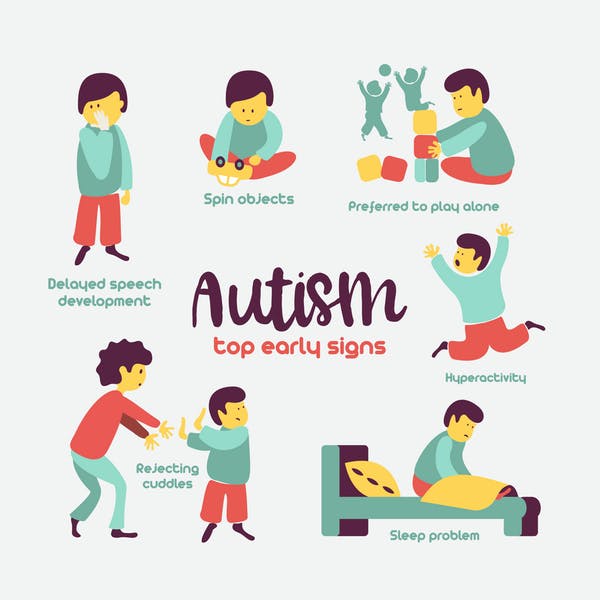There's not an acronym for Autism Awareness Month — and that's ironic. As any parent of a child with special needs will tell you, special education and health plans demand the use of acronyms. Here, MomSpeaker Lisa Lightner shares 25 mom-sourced common IEP/special-ed acronyms. Bookmark the page for easy reference and see several of these acronyms in action over on our newly updated Autism School Survey.
When I first started this journey, I swore that I would never be one of “those people.” Those people who speak in acronyms. Guess what? I am one. And let’s face it, acronyms exist for a reason. To say “individualized education plan” over and over is much more cumbersome than IEP. Or NOREP, that’s a long one. What’s a NOREP? Glad you asked!
For a long time, I thought of publishing a list of acronyms. Pattan puts one out and I have it. But they are also available online. Some of the sites I have seen list up to three pages of them! So what I decided to do – poll the parents in the A Day in Our Shoes Facebook group (come join us!) about what acronyms they find themselves using frequently. So no, I haven’t statistically or scientifically verified that these are the most commonly used special education acronyms; this is anecdotal. But there definitely was a pattern. So if I were going to recommend a list of special education acronyms that you should memorize, this would be the list.
- ABA: Applied Behavior Analysis, type of behavior modification, common misconception is that it is only for kids with autism — not true! Works well with many different populations.
- APS: Approved Private School, usually a more restrictive environment and/or an all special needs school, a placement option
- AT/AAC: Assistive Technology or Augmentative Alternative Communication, what is used for a child to better communicate — above and beyond just talking
- BCBA: Board Certified Behavior Analyst
- BIP/PBSP/BSP: Several different terms or acronyms are used to describe behavior plans, including Behavior Improvement Plan, Positive Behavior Support Plan, Behavior Support Plan, Behavior Plan
- DIBELS: Dynamic Indicator of Basic Early Literacy Skills, an early reading assessment
- ER: Evaluation Report. Your child only ever receives one ER report . . . everything after the first one is an RR.
- ESY: Extended School Year, anything beyond the standard 6 hours a day, 180 days per year
- FAPE: Free and Appropriate Education, one of the main principles of special ed
- FBA: Functional Behavior Analysis or Assessment, a type of evaluation for children to develop the BIP/PBSP
- IEE-Independent Education Evaluation: aka independent eval; a common myth is that the district HAS TO provide you one, they don’t — you have to demonstrate need
- LEA: Local Education Agency, at IEP meetings you should have one person designated to be the LEA and that make sure you request that the LEA has the ability to make placement and financial decisions
- LRE: Least Restrictive Environment, another one of the six principles of special education
- NOREP: Notice of Recommended Educational Placement, a VERY IMPORTANT document, as this is what seals the deal as far as everything in the IEP and placement.
- OCR: Office of Civil Rights
- OT: Occupational Therapist or Occupational Therapy, depending on context it’s being used.
- PLOP: Present Levels of Performance, a section of the IEP, near the front and I think it’s the most important part, since it drives the IEP services
- PT: Physical Therapist or Physical Therapy
- PTE: Permission to Evaluate form, what the school sends you to get your permission to evaluate your child, though they can do it without your consent
- PWN: Prior Written Notice, it was recently written into IDEA in the 2004 reauthorization
- RR: Re-evaluation report, timelines and process are the same for ERs and RRs
- SD: school district
- SDI: Specially Designed Instruction, the meat and potatoes of the IEP — what instructional strategies are specific to your child’s special needs, in order to help them access and benefit from their FAPE
- SLP: Speech and Language Pathologist, aka speech therapist
- TVI: Teacher of Visually Impaired
 Lisa Lightner is a Chester County, PA mom of two. This post was adapted from the blog A Day in Our Shoes, which she co-authors. It provides support, resources and advocacy services for parents of children with special needs.
Lisa Lightner is a Chester County, PA mom of two. This post was adapted from the blog A Day in Our Shoes, which she co-authors. It provides support, resources and advocacy services for parents of children with special needs.






